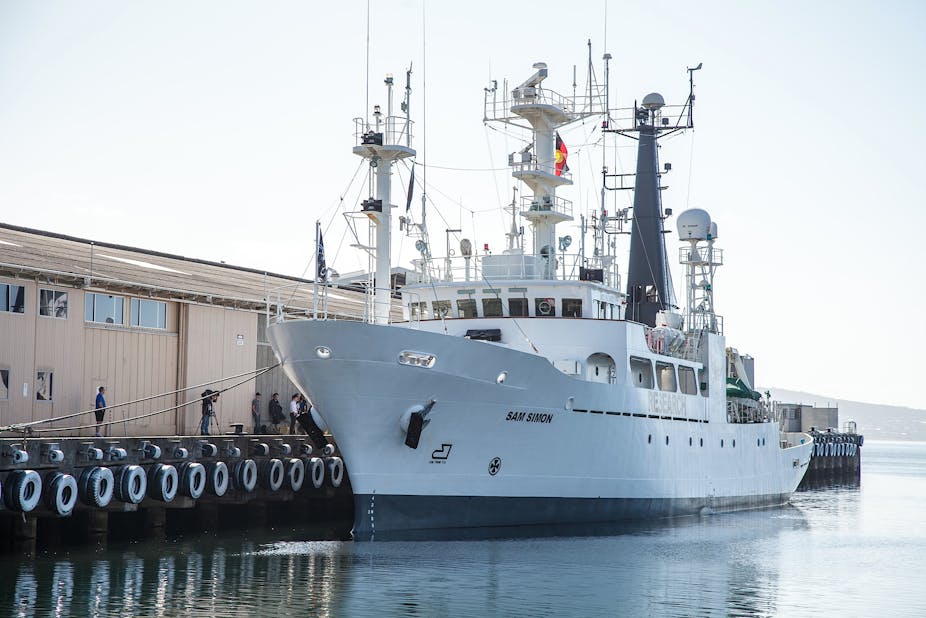On Monday a US federal appeals court granted an injunction requiring the Sea Shepherd Conservation Society to stay at least “500 yards” (457 metres) away from Japanese whaling vessels.
It is a significant victory for the Japanese whaling industry. If complied with (and it should be as the US-based Sea Shepherd and its flamboyant Captain Paul Watson both accepted the US court’s jurisdiction) the decision will allow Japan to engage in whaling in the Southern Ocean essentially unhindered for the first time in a decade.
The Sea Shepherd Case was brought by the Japanese Institute of Cetacean Research and the company that conducts Japanese research whaling, Kyodo Senpaku Kaisha Ltd.
The Sea Shepherd Case was initially filed by the Japanese plaintiffs in the US District Court for the Western District of Washington. The case was dismissed by the court, and for a fascinating reason – that “international comity” demanded that it respect an earlier decision of an Australian court.
The District Court referred to a case in the Federal Court of Australia decided in 2008, in which it was found that Kyodo Senpaku Kaisha broke Australian law by engaging in whaling near the Australian Antarctic Territory, which is within the Australian Whale Sanctuary (AWS).
The US District Court explained its reasons for refusing the whalers’ motion for a preliminary injunction as follows:
[Australia’s] legislature has declared whaling unlawful in the AWS, and whose courts have enjoined the whalers from hunting there. The whalers decline to recognize either Australia’s law or the injunction because they dispute Australia’s sovereignty in the AWS. Indeed, the whalers refused to participate in the Australian court proceedings. But whether the whalers respect Australian law, international comity demands respect for the judgments of foreign courts….Regardless of the whalers’ view of the Australian injunction, the Australian judiciary has imposed it and expects the whalers to adhere to it. What penalties, if any, the whalers face for violating the Australian injunction is not this court’s concern. This court’s concern is that the whalers ask a United States court to issue an injunction that would help them engage in the very conduct that an Australian court has enjoined. The court will not grant that request. At a bare minimum, the court will not issue an injunction (or any affirmative relief) as to the whalers’ conduct in the AWS.
The AWS is given legal force by the Environment Protection and Biodiversity Conservation Act 1999 (Cth) (EPBC Act), and applies throughout Australia’s 200-mile (320km) Exclusive Economic Zone, around Australia’s mainland and its external territories.
The Australian government has not taken any steps to enforce the Federal Court of Australia’s 2008 order against the Japanese whalers, for the good reason that it would create a major diplomatic incident. Japan does not recognise Australia’s claim to Antarctica (only four countries do: France, New Zealand, Norway and the United Kingdom, and they are also Antarctic claimants). Moreover the 1959 Antarctic Treaty rules out enforcement action against foreign nationals.
Despite this, the Federal Court of Australia’s decision was clearly given some practical effect when considered by the US District Court in the Sea Shepherd Case. That may now have changed with the decision on appeal by the US Court of Appeals, which has granted the injunction against Sea Shepherd. However we will not know for certain until the court issues its opinion on the merits of the appeal from the lower court ruling.
The Japanese government has been a mostly passive player in the cases that have been brought in various national and international jurisdictions arising out of whaling in the Southern Ocean and the protest activities of Sea Shepherd.
That has now changed decisively with the Sea Shepherd Case brought in the US Courts. Whether this is an opening salvo in a new aggressive litigation strategy by Japan remains to be seen. But it is an interesting development given that many commentators anticipated that Japan’s financial troubles would see it quietly roll back its financially (and diplomatically) costly whaling activities.
To many the injunction against Sea Shepherd granted by the US Court will come as a vindication for common sense, as Sea Shepherd repeatedly flouts accepted rules for safe navigation set out in the International Maritime Organization’s Regulations for Preventing Collisions at Sea.
Other environmental groups such as Greenpeace abandoned a confrontational approach some time ago in part because of safety concerns, but also because while it may frustrate the Japanese whaling industry, it has no effect on hearts and minds in Japan, which will need to change for their to be a permanent end to whaling in the Southern Ocean.
Whatever happens in the Southern Ocean this summer, and in courtrooms in the United States, Australia or elsewhere, the main arena for contesting the legality of Japanese whaling in 2013 will be the International Court of Justice (ICJ). The ICJ will hold hearings in the long-awaited case, commenced by the Rudd government in 2010. It squarely raises the question that needs an answer – whether Japanese whaling is truly research whaling consistent with the 1946 International Convention for the Regulation of Whaling, or whether instead it is commercial whaling in disguise.

